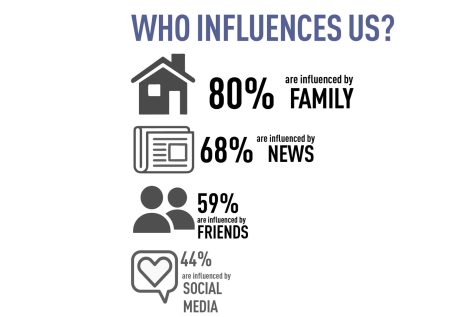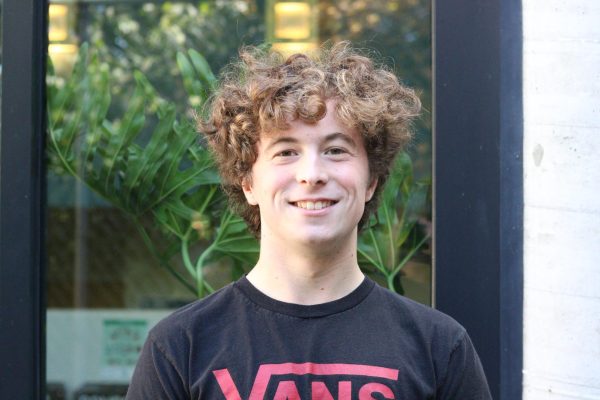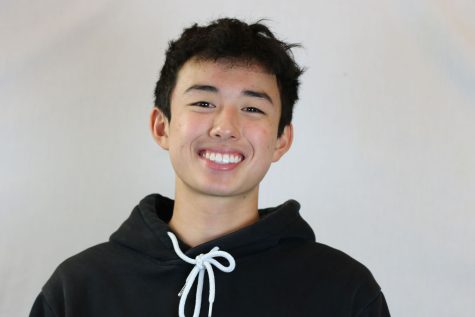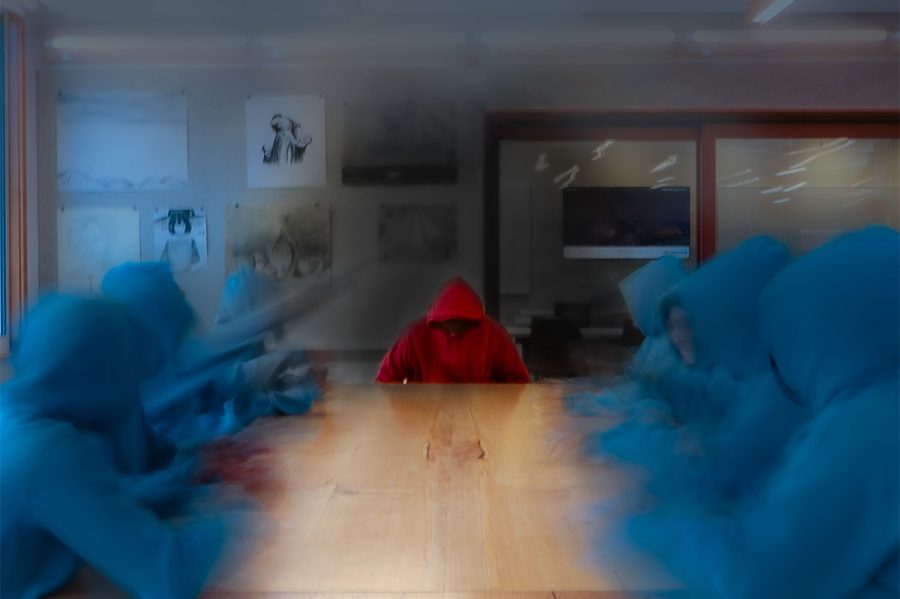Friends in the Classroom, Foes Across the Aisle
Despite giving space for political discussions, some still feel left out of the conversation
Photo: Ethan Matsubayashi
“This side of the room if you agree; that side if you disagree.”
There is a flurry of movement as your classmates move to the edge of the room. You watch as friends, peers, and teammates alike all leave you isolated on the opposing side.
“Would anyone like to share why they chose their position?”
Your mouth stays closed as you stare at a sea of unwelcoming eyes.
With the 2022 midterm election recently coming to a close, political discussions form in many different rooms and corridors of the University Prep campus.
However, these conversations largely do not involve conservative students.
In a poll of 120 upper school students, less than 20% identified themselves as conservative-leaning.
Senior and self-described centrist Diego Rubilralta has noticed that UPrep programming places more emphasis on certain opinions over others.
“I feel like UPrep characterizes itself as having multiple opinions,” Rubiralta said. “but in terms of the general landscape, more often than not there is one side that is being pushed.”
Senior Claire Crawford identifies as liberal and feels comfortable sharing her views in class, but also acknowledges that the ideological leanings of the school are more aligned with her worldview.
“I have no problem expressing my views. I agree with a lot of people, and the kind of things I believe in are what I feel like the school is pushing,” Crawford said. “But I don’t think we’re necessarily unwelcoming to any political views.”

Junior Walker Britton who describes himself as centrist, similarly feels that his opinions are accepted and reflected in his classes.
“One thing that I love about UPrep is that it’s very inclusive. I feel like everyone is very smart and then they have their opinions, so it’s a very inclusive landscape that everyone can fit in,” Britton said. “I think that teachers do a really good job of, if politics were involved, [making me feel] included.”
While some feel comfortable in class, others still find themselves encountering difficulty in sharing their opinions.
“Sometimes I may disagree with a teacher or I may disagree with my classmates and instead of being open to structured debate, I can find myself being alienated for what I think is right,” Rubiralta said.
One place where Britton and Rubiralta have both found intellectual freedom is in UPrep’s Centrist and Conservative (C&C) club. Britton, one of the student leaders, describes the club as a safe space for all voices.
“It’s the politics club at our school, and we hold civil discussions,” Britton said. “I think that discussion is a very important thing, especially dealing with topics that affect their country, and having these civil discussions and helping people form their opinion.”
Gus Feliu, history teacher and faculty advisor for the C&C club, described how school-sponsored political programming is often biased, thus creating the need for a space for people with conservative views.
“It was founded by students who felt that their point of view wasn’t given a fair hearing in the context of something like community conversations,” Feliu said. “The students who formed it were looking for an opportunity to be able to have discussions about topics framed in ways other than what they perceived as typically being left leaning.”
For Feliu, unbiased discussion of topical issues is critical to a productive classroom. At his old job, Feliu taught an elective in philosophy and ethics. To remove biases, Feliu suggests more intentionality when speaking.
“Try and be as self reflective as you can about whether or not you were presenting or talking about this in a non-biased way,” Feliu said. “The idea being to reflect, and then you hopefully catch yourself, or gain some kind of self awareness through that intentionality.”
Along with eliminating bias, Feliu also believes it is important to encourage a diverse set of voices to participate in conversations.
“My commitment to teaching and just my general commitment everywhere: that it is best to hear from as many folks as possible,” Feliu said. “The biggest danger is that you end up in an echo chamber where you are hearing ideas and concepts that you already hold, and these are being reinforced.”
According to Feliu, without diverse voices a classroom can turn from a melting pot to a hivemind.
“It’s hard to get a sense for how good your ideas are, if you’re only hearing within the same sort of echo chamber, and that’s a danger in places that lean particularly one way or the other.”
Rubiralta echoes Feliu’s sentiment. He believes that the issue of repeated points of view needs to be changed for the betterment of the UPrep community.
“Being open to disagreement is an important skill that you need in your life and I think at UPrep, people are sheltered from developing that skill, which is not great,” Rubiralta said.
Someone who helps people develop this tool is Jeff Schrio. Schrio works for Braver Angels, a nationwide organization that aims to encourage civil discourse across the aisle. Schrio is a Washington ambassador for the group.
In accordance with Feliu and Rubiralta, he believes that the issue of a large political divide can best be described as when individuals feel like their opinion is not heard.
“When you avoid political conversation altogether because you are afraid of all the acrimony that might ensue. That is when it becomes a problem,” Schrio said.
When Rubiralta shares his opinion, he emphasizes the importance of staying respectful if someone in the conversation has differing political views from him.
“I try to be civil. When you disagree with something, you can get very passionate but as long as you remember that it is a matter of opinion and at the end of the day there is not much you can do about it to change someone’s mind,” Rubiralta said.
Braver Angels was created in order to spread these values and combat the rising tensions after the 2016 election. Schrio gives more context to the reasoning behind the organization’s foundation.
“The people that first launched it recognized that this [the country] is just not a good environment for having dialogue about anything and that people are demonizing each other,” Schrio said.
According to him, the divide has gotten worse throughout the country every year.
“One of the things that Braver Angels and a lot of other political researchers found is that within a particular political viewpoint, there tends to be more and more effective polarization,” Schrio said. “This means that you discount what the other side has to say entirely without ever hearing it. You just assume that all the stereotypes apply.”
However, according to Schrio, there are strategies that can help close the rift. Part of his job is to teach people how to hold difficult conversations.
“We have training workshops that teach people how to be better communicators without making others feel afraid to talk,” Schrio said. “We also set up venues, debates and one-on-one conversations for people to get together and talk through things.”
Along with participating in workshops, Schrio explains there are certain qualities that aid in bridging the political divide, such as the ability to remain accepting.
“The word ‘bravery’ is in our title because sometimes you have to swallow your pride and listen to other people. You have to remain open minded and engage,” Schrio said.
There has been a concrete effort to encourage unbiased discussions called Listen, Engage, Acknowledge, Discuss (LEAD) at school. These meetings are held monthly, with the intent of giving the student body space to discuss topical issues. Crawford is a LEADer, meaning she facilitates these meetings.
“The whole goal of LEAD is to have people talk about things they wouldn’t usually talk about,” Crawford said. “When it comes to more political things, it can be really healthy and productive for people to feel like they can express their values, especially if they’re different from other people.”
However, Rubiralta feels that he has to hold back from sharing his true opinion in order to prevent an argument, even in LEAD’s structured environment.
“I think trying to force conversations in LEAD only makes people more uncomfortable if they are going to discuss something that they know is going to create discourse,” Rubiralta said.
While he recognized the importance of LEAD, Rubiralta believes that the monthly meetings aren’t enough.
“These conversations need to happen unprompted,” Rubiralta said. “They need to be natural and unscripted because when you are defining things along very strict lines of how you want a conversation to grow you are not going to let people think as critically as they could.”
No matter the amount of work needed, Schrio strongly believes that bringing the political gap closer is integral to a functioning society.
“You guys are the future,” Schrio said. “If you do not know how to talk to each other then I do not know how we are going to solve any of the world’s problems.”

Carter Headstrom is an editor-in-chief on the staff of the Puma Press. He is a senior and this is his fourth year on staff. He loves to write sports stories...

Ethan Matsubayashi is one of the print editors-in-chief of the Puma Press. He has been on staff for three years and is excited to explore innovative formats...


